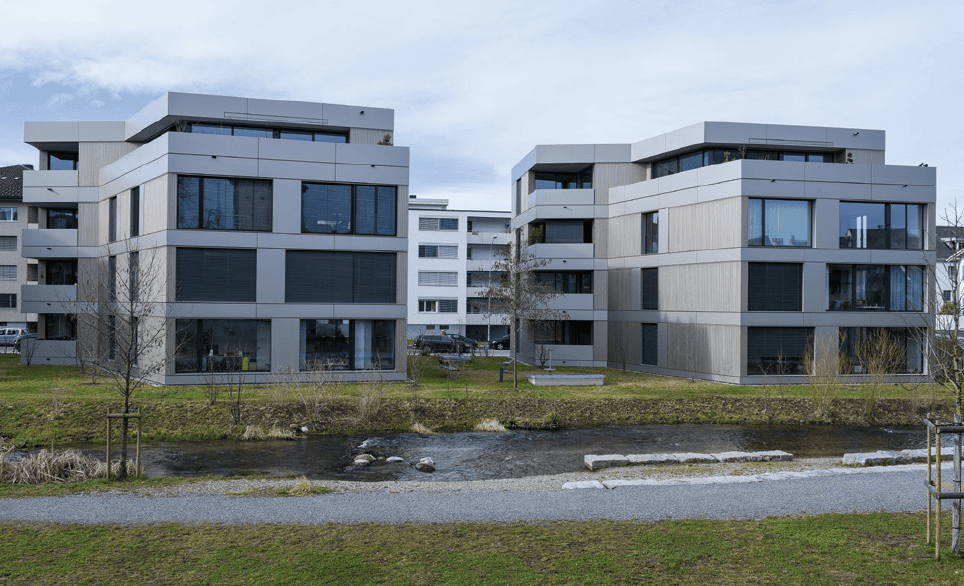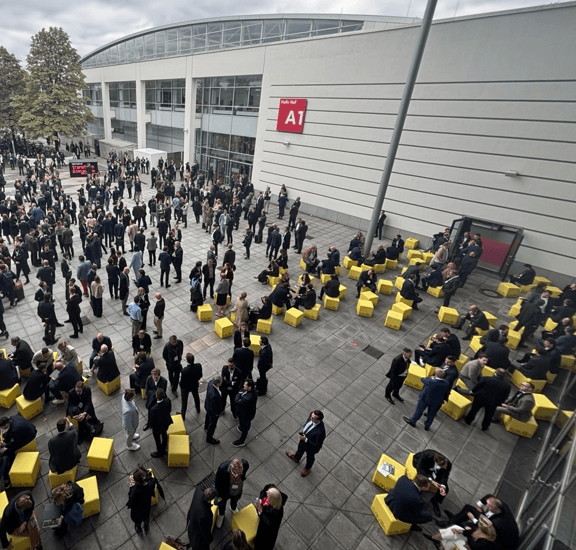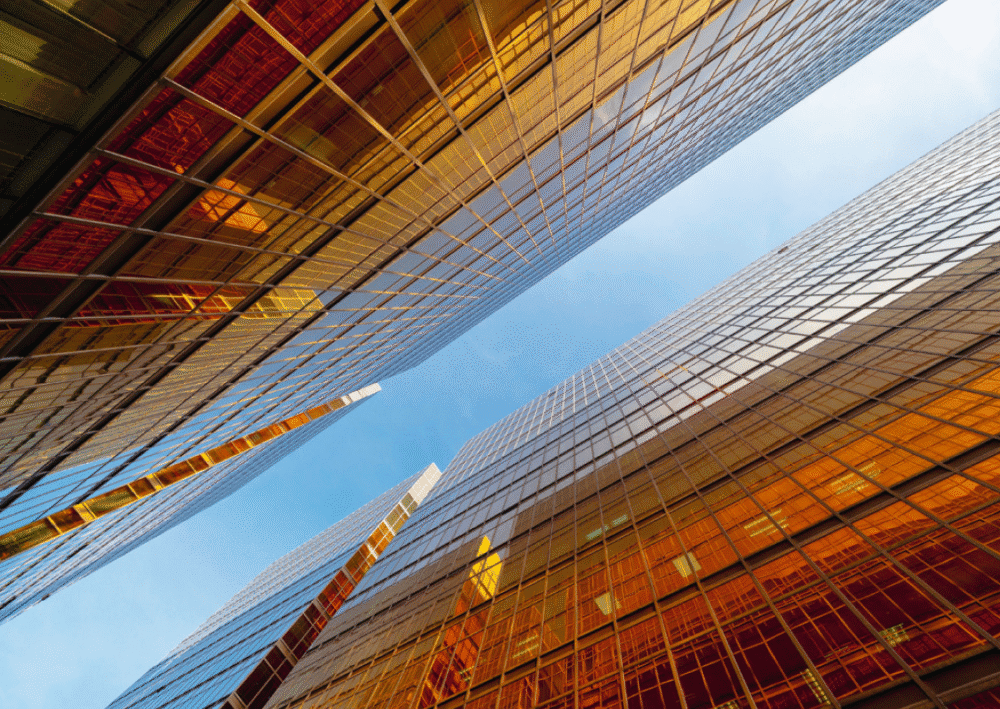Review 78th Swiss Real Estate Talk: "What does sustainable mean here?"
The term sustainability has become widely established in the real estate markets. Various experts shed light on the theory, practice and latest developments on this topic at the latest Swiss Real Estate Talk in Zurich's Metropol restaurant at the beginning of November.

Dr. Christian Kraft, lecturer and project manager for real estate as well as co-director of the MScRE course at the Lucerne University of Applied Sciences and Arts, introduced the 78th Swiss Real Estate Talk with a look back at history and recalled the former meaning of the word "sustainability". It was defined as a principle in forestry by Hans Carl von Carlowitz in his work "Sylvicultura Oeconomica", published in 1713 in the face of an impending raw materials crisis - and then increasingly used in other areas over time.
In the global real estate industry, the term has only been increasingly used since the turn of the millennium: Sustainability certificates such as BREEAM (Building Research Establishment Environmental Assessment Method; UK since 1990) LEED (Leadership in Energy and Environmental Design, USA since 1998) or DGNB (Deutsche Gesellschaft für Nachhaltiges Bauen; founded in 2007) are now well established. In Switzerland, the SGNI Swiss Society for Sustainable Real Estate has been in existence since 2010 and offers a certification system based on the DGNB criteria. Meanwhile, the first SIA standard for a sustainability rating dates back to 2004.
Sustainability in the spectrum between ability and desire
In addition, Kraft pointed out the particular importance of the real estate industry when it comes to energy saving opportunities - after all, today's building stock accounts for a good third of total final energy consumption and 40 percent of all current CO2 emissions. According to Kraft, the refurbishment of old properties is nowadays assigned a special leverage in saving energy in building operation. In the case of refurbishment measures, old fossil-fuelled heating systems, for example, are renewed or, if possible, replaced by new systems using renewable energies.
According to a study by the Lucerne University of Applied Sciences and Arts, however, there is an urban-rural divide in Switzerland as well as a striking discrepancy between home ownership and rental housing. According to Kraft, almost two-thirds of investments in new and renovated buildings are made in locations that are poorly or only moderately connected to public transport. "We are not getting renewable energy into the cities," Kraft explained at the real estate talk and referred to the results of a study of building permits in the years 2009 to 2018: here, the distribution of renovation measures showed that the main part of the investments flowed into exterior or interior insulation and only a significantly smaller part into new and sustainable energy production.
In the case of private residential property in rural regions, on the other hand, the use of renewable energies is given much higher priority. In contrast, "green aspects" are much more difficult to implement in the case of internal densification in cities, for example in the addition of storeys or the construction of new apartment buildings. "Here, the sustainable approach is still chosen most by housing cooperatives," Kraft reported. His conclusion: every year, around 18 billion Swiss francs are invested in value-preserving and value-enhancing measures in Switzerland's building stock. "Renewal investments should be targeted, long-term and used with a sense of proportion." The argument of sustainability alone is not enough. In the end, the user of the property must also benefit from an improvement in comfort and the long-term economic viability for owners must be guaranteed, Kraft said at the 78th Swiss Real Estate Conference.
The review of "green" portfolios and funds
Marie Seiler and Miriam Gellert from PwC Real Estate Advisory Switzerland showed the extent to which European regulation and standards in the financial sector now demand sustainability criteria in real estate portfolios. With its action plan, the EU wants to regulate and achieve a significant part of its climate and energy targets via sustainable capital flows. Much of this directly affects the real estate sector and the real estate portfolio. It is not yet clear whether and how comprehensively Switzerland will implement these regulations. But the application of these standards in neighbouring EU countries alone, as well as the self-regulation of the industry and the rating agencies, will result in strong pressure on Swiss players as well. Long-term investors in particular, such as insurance companies and pension funds, will have to pay increasing attention to ESG criteria (ESG stands for "environmental, social and corporate governance") in order to minimise the risk in their portfolios. For example, the new edition of the Ordinance BVV2 will require pension funds to invest only in sustainable assets. But is the real estate portfolio of the PFs already sustainable today? And if not, what investments will be needed in the near future to achieve this?
According to Seiler and Gellert at the Real Estate Talk, it is important that the term "sustainability" in the real estate industry does not degenerate into mere "green-washing", as is often the case today. Individual aspects of sustainability are emphasized and used as marketing, without a uniform picture of the sustainability of the facilities being given and their effect being shown. Sooner or later, all portfolio data must be made available to investors at all times in a structured and transparent manner. This applies above all to the increasingly detailed disclosure requirements. But also external reviews, for example by rating agencies or industry initiatives such as the GRESB rating. This alternative rating system measures the sustainability performance of real estate companies and real estate funds from seven different aspects, the so-called GRESB score.
Other important aspects in connection with sustainable properties are the data. For example, the cantons' building energy certificates (GEAK) or the parallel system of Energy Performance Certificates (EPC) at EU level could help to take stock. "With regard to sustainable real estate portfolios, real estate owners should take advantage of the momentum now, implement standards, prepare for the future and observe further regulatory developments very closely," concludes Seiler.
Real estate management "with good common sense
Marc Derron, Chief Construction Officer at Pensimo Management AG, explained at the real estate meeting that the various investment foundations of the Pensimo Group are committed to sustainability in all dimensions, but also described it as a "major challenge". However, Pensimo is only marginally oriented towards labels, certificates and ratings, said Derron. "Doesn't that create huge rating monsters that no one understands or sees through?" he asked. However, he said Pensimo also emphasizes sustainable management in its existing portfolio. There is a close exchange with investors and, with regard to sustainability, the company initially wants to achieve "a great deal with good common sense". Positive experiences have been made in the residential quarters with "estate coaches", a new and expanded form of caretaker services.
Derron also mentioned CO2 reduction as one of the measures targeted for the future. The company has set up its own CO2 reduction path and intends to follow it according to self-defined guidelines. This is based on the federal government's Energy Strategy 2050 and aims to fall below this level. In addition, the Pensimo Group has commissioned an analysis of the sustainability performance of all properties in the form of GEAKs.
A survey conducted in 2017 among residents in the approximately 15,000 Pensimo apartments showed that tenants are very interested in non-fossil energy sources. Energy and technical refurbishments would be tackled if it fitted into the cycle for the individual property. "Better a fossil-free heating system than a perfectly insulated house," is Derron's motto. But it's also clear: "We want to make the most of the service life of the technology once it's installed." Installing the latest technology at short intervals, on the other hand, is counterproductive.
The social dimension of sustainability
Eva Gerber, member of the management board of Kontextplan AG, with offices in Zurich, Bern and Solothurn, then used examples from community, urban and regional development to show that sustainability has various dimensions and should above all be understood as a social attitude. When planning and building, attention should not only be paid to ecological sustainability, but also to social aspects, such as mixing, cohesion and scope for design for neighbourhood residents, or integral developments. In the case of real estate projects, this means involving all those affected as far as possible and not just clarifying the situation with investors. Gerber advocated understanding sustainability as a process that is ongoing and can never be completed. There is no single sustainable solution. Every project, every neighbourhood and every city must be considered differently and individually.
She formulated five approaches that are needed for sustainable site development: (1) measures must always be understood as urban and neighbourhood development at the same time, (2) building culture should be understood as a community task, (3) liveliness must be allowed on and in the sites and create "spaces of opportunity", (4) meetings of people should be actively facilitated and (5) user needs should be identified, for example by means of social space analyses. "Social sustainability cannot be achieved with checklists and monitoring alone," says Gerber. It is also important that spaces remain adaptable at all times, especially with regard to any changes in needs.
- The upcoming 79th Swiss Real Estate Conference on the topic of "Digitalization in the Real Estate Industry" will take place on 17 March 2020. Further information on this and the speakers can be found promptly at www.immobiliengespraeche.ch.
Presentations









